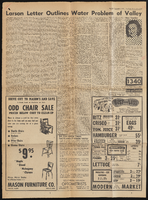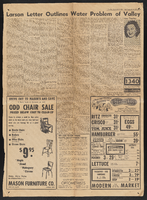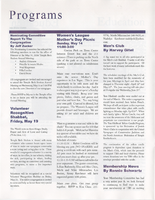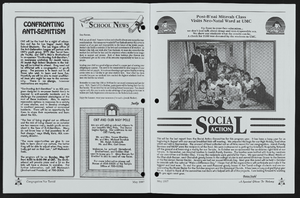Search the Special Collections and Archives Portal
Search Results
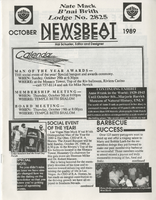
Nate Mack B'nai B'rith lodge no. 2825 Newsbeat newsletters, item 03
Description
Newsbeat newsletter for October 1989
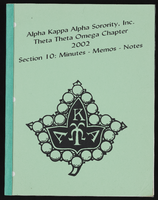
Alpha Kappa Alpha Sorority, Theta Theta Omega Chapter meeting minutes (redacted)
Date
Archival Collection
Description
From the Alpha Kappa Alpha Sorority, Incorporated, Theta Theta Omega Chapter Records (MS-01014) -- Chapter records file.
Text

Transcript of interview with Margie Joanne Corderman by Leora Cohen, March 11, 1981
Date
Archival Collection
Description
Text

Transcript of interview with David Bruce Dill by Luise A. Soholt, March 13, 1975
Date
Archival Collection
Description
Text

Christine Szukala oral history interview: transcript
Date
Archival Collection
Description
Oral history interview with Christine Szukala conducted by Bridgette Foote on November 12, 2021 for Reflections: The Las Vegas Asian American and Pacific Islander Oral History Project. Christine shares her family history and the story of her Thai mother and American Air Force father who met in Thailand and married before moving to the United States in 1970. She talks about her upbringing in Las Vegas, Nevada near Nellis Air Force base with her six siblings. Christine discusses her beliefs of how her newly immigrated mother adapted to American life, including altering her recipes to fit her husband's taste and reducing her visits to nearby Buddhist temples.
Text
Pittman Family Photographs
Identifier
Abstract
The Pittman Family Photographs depict members of the Pittman and Brewington families in Nevada from 1922 to 1989. The photographs primarily depict Nevada Governor Vail Pittman and his wife Ida Louise “Liz” Brewington Pittman at political campaign and fundraising events, including the Helldorado Parade in Las Vegas, Nevada and at the Governor’s Mansion in Carson City, Nevada. The photographs also depict Governor Pittman with President Harry S. Truman, Jim Cashman, and family members. The photographs also include a group photograph of U.S. Senator Key Pittman with business executives representing the Union Pacific Railroad and the San Pedro Railroad. Lastly, the collection also contains family photographs of Ann Brewington, Ida Brewington Pittman's sister.
Archival Collection

